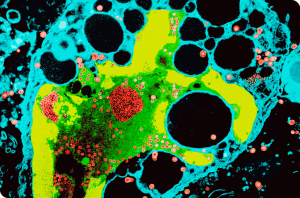March 1, 2012, by Tessa Houghton
Symbiotic politics: resisting governance/ governing resistance
 The following post is a collaboration between Dr. Tessa Houghton (School of Modern Languages and Cultures, UNMC) and Dr. Leonie Ansems de Vries (School of Politics, History and International Relations, UNMC), and emerged from the ‘Globalisations: The Return of the Future or the End of History?‘ workshop run by Professor Andreas Bieler (School of Politics and International Relations, UNUK) on January 2012.
The following post is a collaboration between Dr. Tessa Houghton (School of Modern Languages and Cultures, UNMC) and Dr. Leonie Ansems de Vries (School of Politics, History and International Relations, UNMC), and emerged from the ‘Globalisations: The Return of the Future or the End of History?‘ workshop run by Professor Andreas Bieler (School of Politics and International Relations, UNUK) on January 2012.
The tension between governance and resistance lies at the heart of a broad spectrum of modern and contemporary accounts of political life. Critical approaches ranging from the classical to the post-Marxist, post-structuralist, post-colonial and feminist approaches have attempted to apprehend the intricacies of this agonistic relationship. Its inherent tension has recentlybecome explicit in the resurgence of political opposition to war, Wall Street, global ‘free’ trade agreements and other sigils of advanced neoliberal capitalism. This problematique also surfaces in responses to global warming, economic crises, natural disasters, global pandemics, and human migratory flows, amongst others. These manifestations indicate that the relationship between modes of governance and resistance is characterised not only by direct opposition to liberal governance but also by forms of resistance intrinsic to the project itself. That is to say, liberal governance is both built on and challenged by forms of crisis and resistance, which simultaneously undermine and reinforce its capacities to govern life.
Rather than attempting to capture movements of resistance/s vis-à-vis dominant powers or orders through binaries or dialectics, we require a more complex and mobile analysis – an approach that stipulates or captures netiher beginning nor end, but rather endeavours to engage the moments at play. The notion of the milieu (see Foucault; Deleuze & Guattari) provides a productive platform for this effort. The milieu is open, mobile and complex, marked by the simultaneity of movements of production/destruction, order/disorder, reinforcement/erosion; it simultaneously builds upon, produces and reproduces movements of both governance and resistance. We thus encounter a complex field of forces in and through which movements of both power and resistance are produced simultaneously and co-constitutively. Rhizomatic networks of resistance/movements generate ruptures in the fabric of the milieu, punctuating its terrain with ‘lines of flight’ (ligne de fuite; see Deleuze & Guattari) terminating not in tangible endings but in vanishing points (whereby we lose sight of their path) and new evolutionary pathways, characterised by a stable instability of mutation and remix.
Engaging the milieu throws a different light on the question to what extent and in which ways contemporary manifestations of resistance and crisis challenge the liberal order. Does liberal governance thrive through the (re)integration of perturbing forces into the reproduction of governance? Is resistance appropriated by the dominant order, its characteristic movements harnessed to capitalism, such as in viral marketing or propaganda? Is it mitochondrial, an alien organism subsumed within the cell walls of governance, a captive engine for that which it opposes? Or perhaps the process in fact one of reappropriation – from the bubbles and crashes of the financial market, to the global flows of the #occupy movement and other forms of hypermediated protest, and back to the latest guerilla marketing sensation infecting YouTube.
We would argue that the answer is ‘both’, and ‘neither’, and ‘all’. The question is not which virus is host and which is parasite, but rather, what are the parameters of this symbiosis and what does this mean for contemporary politics. Our concern is one of interplay, of dynamic equilibria – about how the twin cogs of this symbiotic engine endlessly generate, recycle, and dismantle the fabric of contemporary political life; rather, what are the parameters of this symbiosis and what does this mean for contemporary politics. Our concern is one of interplay, of dynamic equilibria – about how the twin cogs of this symbiotic engine endlessly generate, recycle, and dismantle the fabric of contemporary political life.
No comments yet, fill out a comment to be the first

Leave a Reply